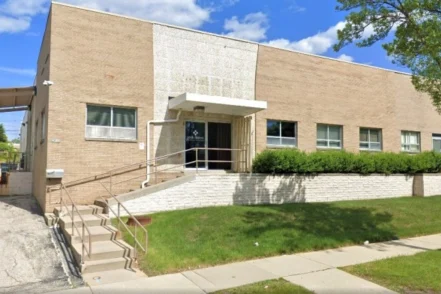How Methadone Helps With Opiate Addiction

Opiate effects in the brain create a dependent state that can persist for years into the recovery process. Without some form of physical support, it can be near impossible for recovering addicts to maintain abstinence for any length of time.
Methadone treatment centers have been around for over five decades. The drug methadone offers a well-proven treatment solution for managing opiate addiction. Methadone facilities can administer methadone for both detox and long-term maintenance therapy.
As addiction develops out of a physical and a psychological dependency, methadone rehabs combine methadone therapy with a range psychosocial treatment supports. Overall, the methadone addiction program approach offers recovering addicts a multi-pronged approach to overcoming opiate addiction in their lives.
Methadone’s Effects
Methadone is a synthetically made opiate drug capable of producing many of the same effects as other opiate drugs. Methadone differs from addictive opiates in its overall effects on brain function.
Unlike addictive opiate drugs, such as heroin and prescription pain meds, methadone produces a slow-acting effect that greatly reduces its addiction potential. While on methadone, recovering addicts also see a dramatic reduction in drug cravings and withdrawal effects. In the process, methadone abuse establishments help reduce the likelihood a person will relapse into old-drug-using behaviors.
Methadone Maintenance Therapy
While methadone can be of great help in reducing drug cravings and withdrawal effects during the detox stage, it works even better as a long-term maintenance therapy. Years of opiate use can cause considerable damage to brain cells and brain cell functions as a whole.
This type of damage can leave addicts craving the drug long into the recovery process. Opiate withdrawal effects can also persist for years into recovery. Methadone abuse rehab facilities administer daily doses of methadone to help relieve persistent withdrawal and cravings effects on a long-term basis.
Methadone Dosage Amounts
methadone addiction centers administer methadone in specific dosage amounts based on a person’s treatment needs. On average, daily dosage amounts run anywhere from 60 to 120 milligrams, though people coming off chronic addictions may require higher dosage levels to keep withdrawal and cravings effects in check.
Once a person reaches a point where methadone treatment is no longer needed, a tapering schedule is used to help wean him or her off methadone’s effects. On average, people who remain on methadone for a minimum of 12 months see the best treatment outcomes.
Addiction Psychosocial Treatment
methadone programs offer psychosocial supports as a required part of the overall treatment program. These supports are designed to help recovering addicts work through the underlying psychological issues driving addiction behaviors. According to the University of Delaware, psychotherapy, drug education, group therapy and 12-Step support group work provides addicts with the tools needed to replace addiction-based behaviors and mindsets with daily coping strategies for living a drug-free lifestyle.
Articles About Alcohol & Treatment

A Guide to Veterans’ Drug Rehab & Addiction Treatment
A Guide to Veterans’ Drug Rehab & Addiction Treatment Addiction is no respecter of persons. It’s an enemy that can …

How Your Environment Impacts Recovery
How Your Environment Impacts Recovery Learning how your environment impacts recovery is an important lesson to learn. In 2010, I …

Do the Foods You Eat in Early Recovery Matter?
Do the Foods You Eat in Early Recovery Matter? You may hear folks in recovery with a bit of time …
Top National Treatment Centers
-
 Florida
Florida1 Solution Detox – CLOSED
2901 Broadway Ave West Palm Beach, Florida 33407
Treatment Programs
- Alcohol Rehab
- Opioid Addiction
- Drug Rehab
- +0
-
 California
California10 Acre Ranch
5953 Grand Avenue Riverside, California 92504
Treatment Programs
- Alcohol Rehab
- Dual Diagnosis
- Opioid Addiction
- +4
-
 Wisconsin
Wisconsin10th Street Comprehensive Treatment Center
4800 South 10th Street Milwaukee, Wisconsin 53221
Treatment Programs
- Alcohol Rehab
- Opioid Addiction
- Drug Rehab
- +4
-
 Oklahoma
Oklahoma12 and 12
6333 East Skelly Drive Tulsa, Oklahoma 74135
Treatment Programs
- Alcohol Rehab
- Dual Diagnosis
- Opioid Addiction
- +4